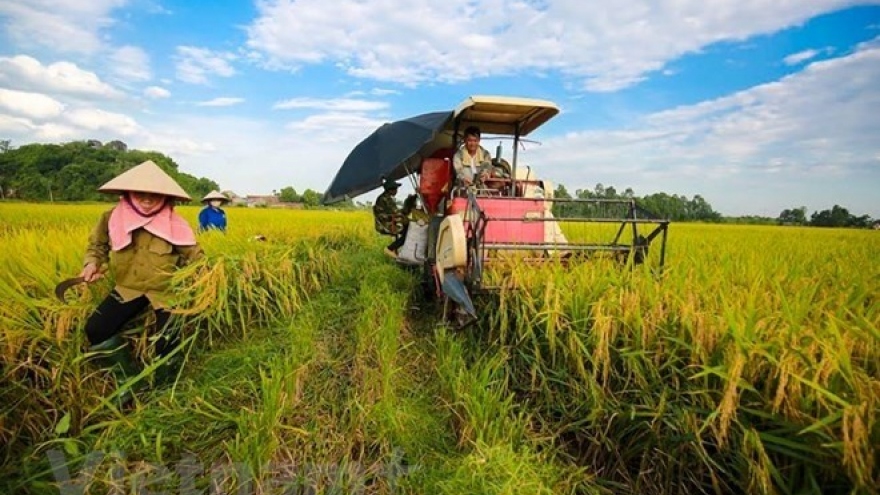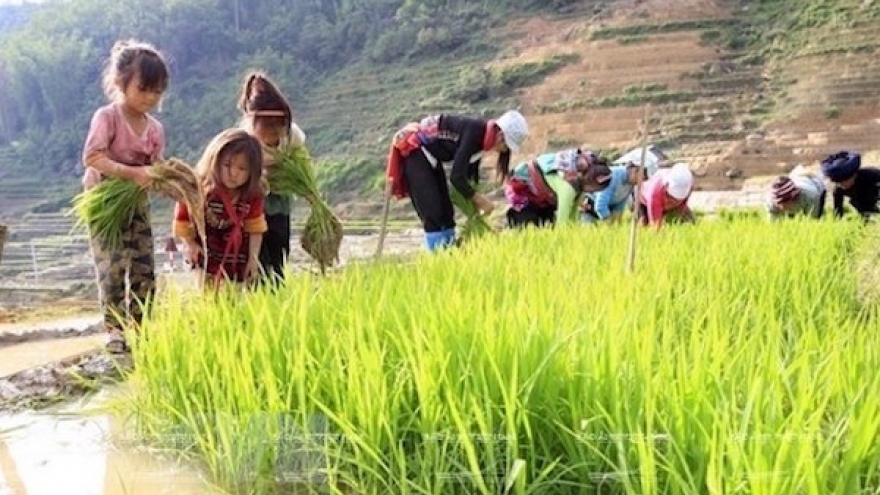Tightening controls over Vietnamese apprentices in Japan
VOV.VN - Tighter controls are needed for businesses that have sent workers to Japan to ensure interns are working in the best possible conditions while in the country, according to Deputy Minister of Labour, Invalids and Social Affairs Doan Mau Diep.
 |
According to statistics from the Ministry of Labour, Invalids and Social Affairs (MoLISA), the number of Vietnamese people residing in Japan has reached 260,000. The steady rise in numbers has seen Vietnam surpass Brazil in 2016 and the Philippines in 2017, to now rank third among countries with the highest number of people living in this Asian nation.
The number of Vietnamese interns and alumni has increased rapidly over the years rising by 16 and 14 fold, respectively, since 2010. The number of interns from China saw a decline, while the number of interns from Vietnam increased sharply. In 2016, Vietnam surpassed China to take the lead in the number of technical interns.
The rate of job abandonment and crime remains high
In his assessment of the Technical Intern Training Program in Japan, Deputy Minister Diep emphasized that the program has helped to solve the workforce shortage in Japan and has also offered lucrative opportunities for young Vietnamese employees. It has helped apprentices increase their incomes, develop skills to further their career, and improve their labour productivity when they return home.
He noted that the rate of apprentices quitting their jobs and continuing to reside illegally in Japan remains high. The crime rate among Vietnamese apprentices and alumni is higher than in those from China and the Republic of Korea. The situation has forced the Japanese Government to ask Vietnam to closely supervise apprentices in order MoLISA and the Japanese Embassy in Vietnam exchanged information on the situation of Vietnamese apprentices in Japan at their recent meeting pointed outing shortcomings in sending apprentices to Japan.
For example, the rate of Vietnamese apprentices absconding from work, residing illegally, and committing crimes remains concerningly high compared to those from China and ROK.
Both sides put the situation down to salary opportunism Migrant workers are fleeing their contracted jobs in the hope of finding work with higher pay. In absconding, they are also avoiding the burden of paying back the fees required to secure a position abroad in the first place. Most of them do not have the necessary funds and have to borrow from banks or other sources. As a result, many migrant workers are under the impression that they must earn money by any means in order to pay off their debts and flee their jobs when before their contract has run its course.
The frequency of low quality labour companies is also attributed to this situation. These companies often paint an unrealistic picture of life in Japan for migrant workers but the work they end up doing bears a grim difference to that defined in the contracts. With unstable pay and unsatisfactory conditions, many workers have to find other means to earn money in order to pay their debts and return home.
Intervention needed on both sides
To minimize the negative aspects will require action from both sides, the Japanese side needs to devise a set of solutions for the skilled apprentices. For example, the Japanese side has advised other parties to make use of the new technical intern training mechanism based on the Technical Intern Training Act, promote the enforcement of the act, collect information and request nations to cooperate through representative offices abroad for information sharing among relevant ministries and agencies.
The Japanese Embassy has also asked the Vietnamese Government tighten the management of poor quality companies sending migrant workers abroad, and to give a widespread announcement on fees, prohibit deposits and warn of the risks from brokers for those wishing to go abroad or taking internships in Japan through the embassy’s website and Facebook page.The embassy also supports the establishment of a consultancy desk for alumni and apprentices at private law offices.
Mr Diep said the Prime Minister urged the MoLISA to tighten controls on all labour businesses to ensure that apprentices are provided with the best working conditions while in Japan. The Ministry will report to the Prime Minister on increasing punishments for businesses with high rates of worker abscondence and denying these companies participation in this program. For businesses which fail to control the number of absconders, the Japanese side will cease all cooperation with them, he added.


